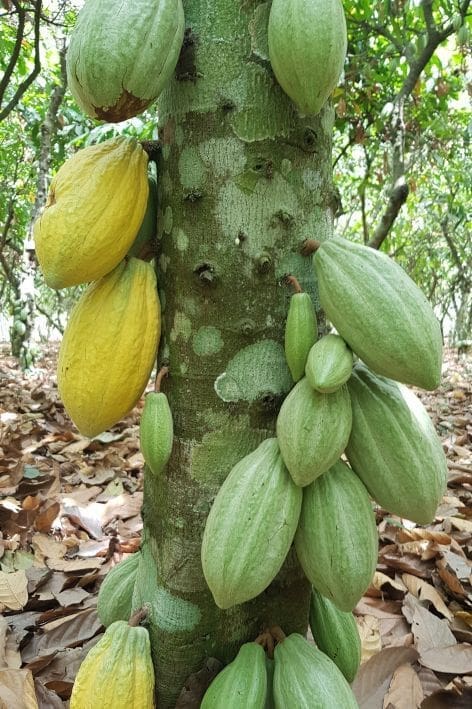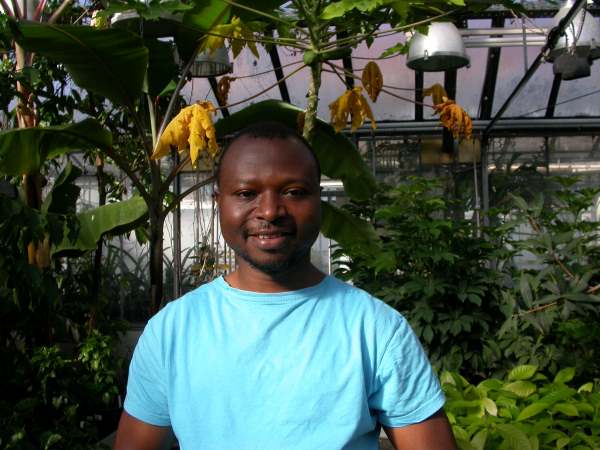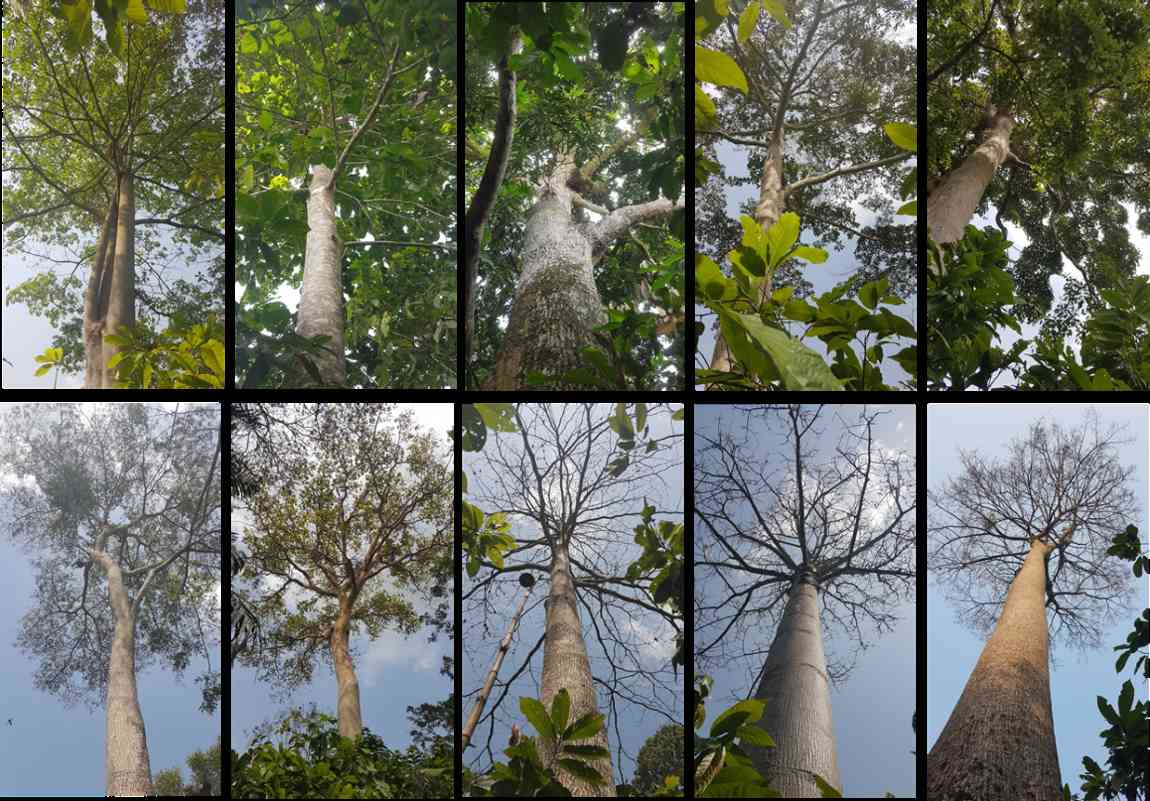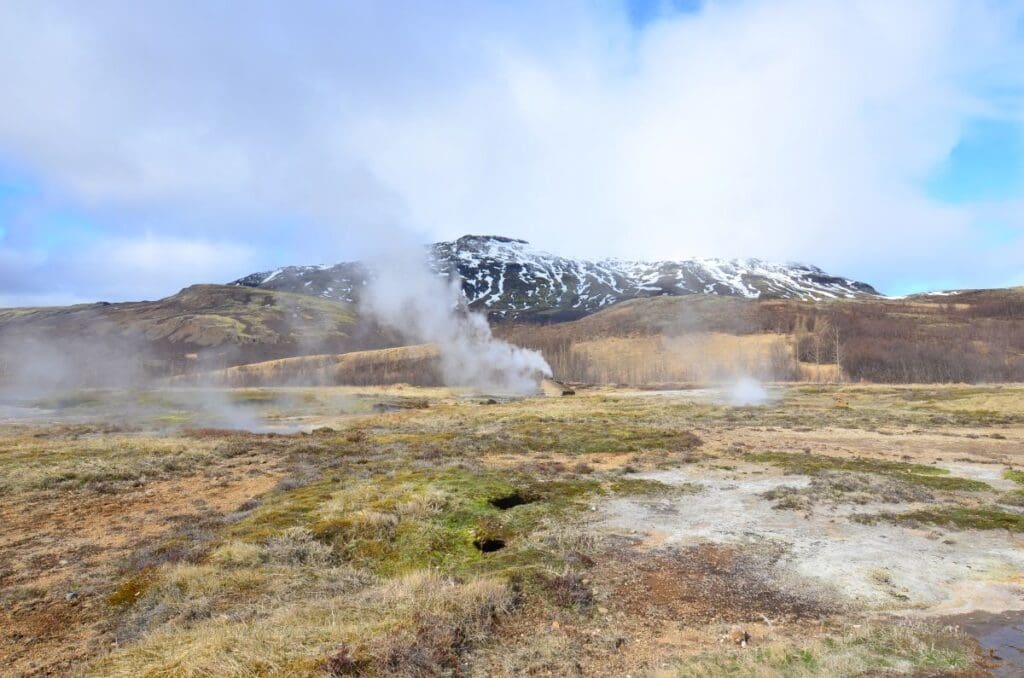Agroforestry systems, which integrate trees and shrubs into farming, are vital to achieving sustainable cocoa production in West Africa where 70 percent of the world cocoa is produced.

Climate change induced drought means that it is ever more critical to adapt farming practices and find new approaches.
Research led by scientists from the University of Göttingen sheds light on a promising new approach to improve climate resilience in cocoa agroforestry across West Africa; this focuses on the critical role of leaf “phenology” – the seasonal changes in leaf cycles – in trees providing shade in managing climate impacts.
The study discovered that the seasonal leaf cycles of shade trees can significantly influence the productivity of cocoa agroforestry systems as well as their resilience to global environmental change.
The results were published in Agriculture, Ecosystems & Environment.
It is known that shade trees can mitigate extreme environmental conditions. They can also compete for water and light resources. To explore the complex dynamics, a two-year field study in Ghana’s northern cocoa belt was carried out by an international team of researchers at the universities of Göttingen, Munich and Tübingen in Germany, as well as Kwame Nkrumah University of Science and Technology and the International Institute of Tropical Agriculture, Ghana.
They monitored seasonal changes in the leaf cycles of different shade tree species, including canopy height, and light interception during wet and dry seasons. These trees were then assessed for their effects on microclimatic stability, soil moisture, and cocoa yields in their immediate vicinity.
The research team conducted extensive analyses and categorized shade trees into seven functional groups based on their leaf phenological cycles, each having distinct effects on cocoa yields and environmental stability.

Among these groups, shade trees that lose their leaves entirely during the dry season proved especially beneficial in maintaining soil moisture; this is critical during drought periods to protect cocoa productivity. In contrast, trees which lose their leaves for a shorter time in the dry season result in high soil water demand; this could be detrimental in regions with longer dry seasons.
Evergreen trees proved valuable in moderate climates but posed increased fungal disease risks in wetter conditions. “By using functional groupings based on leaf phenology, rather than focusing on the huge number of individual species, we offer practical guidelines for selecting shade trees that support climate resilient cocoa production,” explained Dr Munir Hoffmann from Göttingen University’s Faculty of Agriculture, Tropical Plant Production and Agricultural Systems Modelling.
“This study sheds light on the importance of leaf phenology as a guiding trait for selecting shade trees that will enhance cocoa resilience to climate change,” emphasises lead author Dr Issaka Abdulai, postdoctoral researcher at the same research group.
“We have shown that, if chosen judiciously, shade trees can be allies in both sustaining cocoa productivity and enhancing environmental stability,” adds Professor Reimund Rötter, head of the research group. “Our results suggest a clear path forward for designing agroforestry systems that deliver higher resilience and sustainability.”
Journal Reference:
Abdulai, I. et al. ‘Functional groups of leaf phenology are key to build climate-resilience in cocoa agroforestry systems’, Agriculture, Ecosystems & Environment 379, 109363 (2024). DOI: 10.1016/j.agee.2024.109363
Article Source:
Press Release/Material by University of Göttingen
Featured image: Different appearances of leaves on shade trees showing “phenology” grouping Credit: Issaka Abdulai




